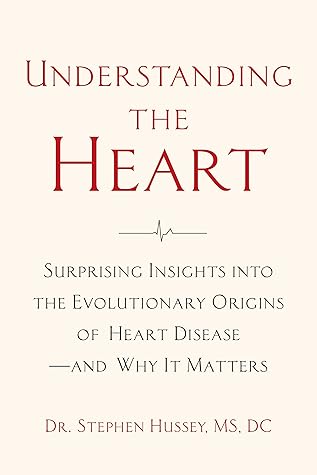Kindle Notes & Highlights
Most of our organs prefer to burn fat for fuel, but this is especially true of the heart.16 When other organs are forced to burn predominantly glucose for long periods of time, cells can switch from oxidative phosphorylation to glycolysis, leading to cancer. If the heart is forced to burn predominantly glucose, something far worse and potentially fatal can happen: a heart attack.
During endurance exercise the heart is forced to burn more glucose, which results in the buildup of lactic acid and hydrogen ions in the heart tissue. This buildup can damage the heart muscle and lead to scar tissue. The now-less-functional heart tissue in turn predisposes us to heart failure by weakening the heart’s ability to vortex water. This weakened state then leads to inadequate blood flow and increased pressure in the heart chambers, eventually contributing to heart failure.
Later, I thought about how convinced I’d been that I’d found the correct combination to the safe, even though the feedback from the locked safe told me I had not. After three tries, I’d figured there must be something wrong with the safe. I’d even considered calling the front desk to tell them they’d programed it wrong. In reality, I was moving forward without all of the information.
Heart cells cannot divide.
The only growth of heart tissue that can occur after that point is through expansion in cell size and not through cell division. Some have speculated
If increased glucose utilization leads to buildup of lactic acid in the heart where cells cannot divide, the cells die quickly and result in necrosis.
Remember that the heart, which prefers burning ketones for fuel, has mechanisms for ensuring it can burn fatty acids and ketones, such as having “first dibs” on fatty acids delivered through chylomicrons and direct communication with fat cells for mobilization of fats as needed.
What can overload the system besides food? Cholesterol-lowering drugs.
All this is to say that humans are designed to eat and use animal fats, but we can use plant fats to survive when animal fats are not available. Plant fats are not ideal and long-term high use of them can lead to many health problems.
A 2019 systematic review of all the randomized controlled trials on red meat and cardiometabolic and cancer outcomes stated that their findings “do not support the recommendations in the United Kingdom, United States, or World Cancer Research Fund guidelines on red meat intake” and that they “highlight the uncertainty regarding causal relationships between red meat consumption and major cardiometabolic and cancer outcomes.”61


